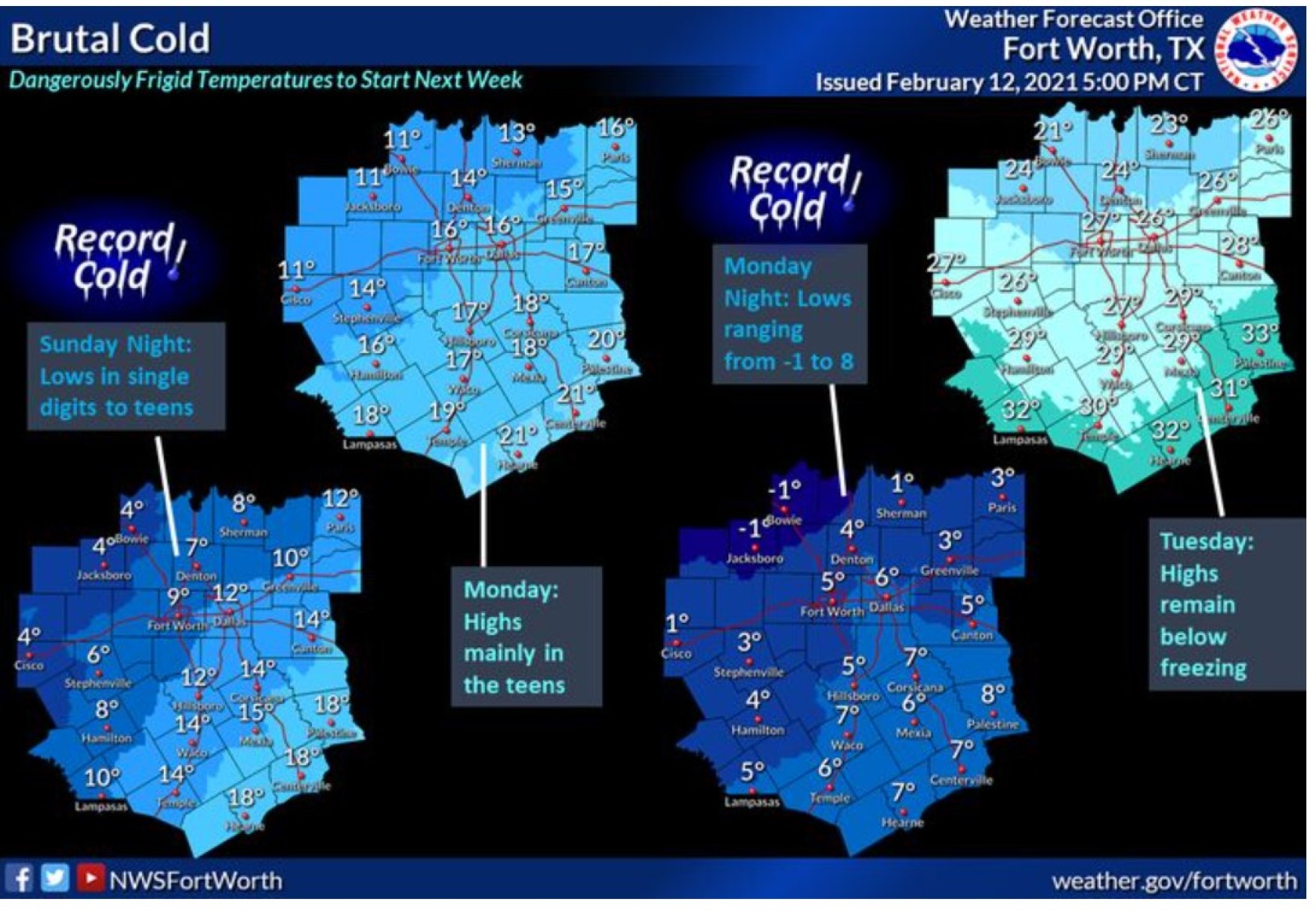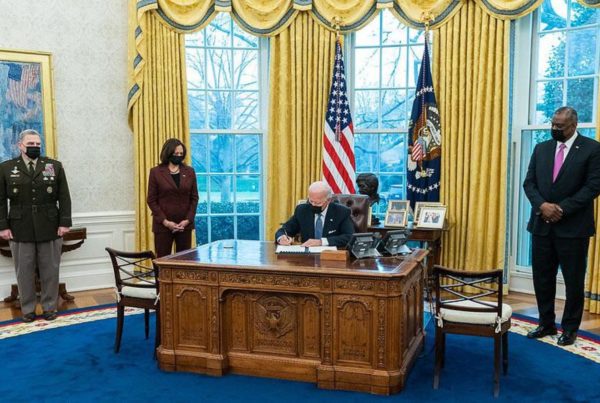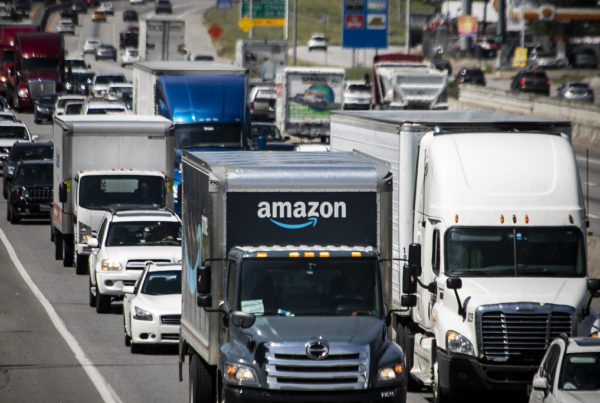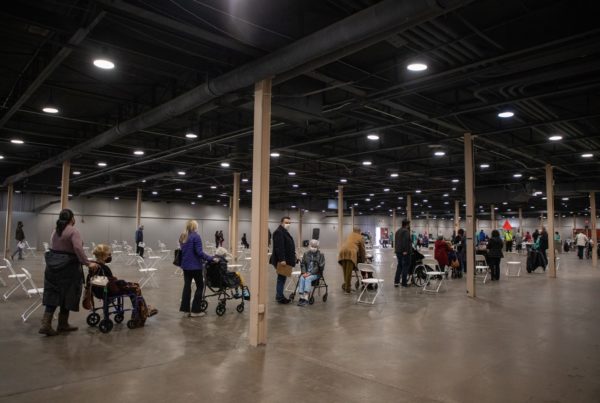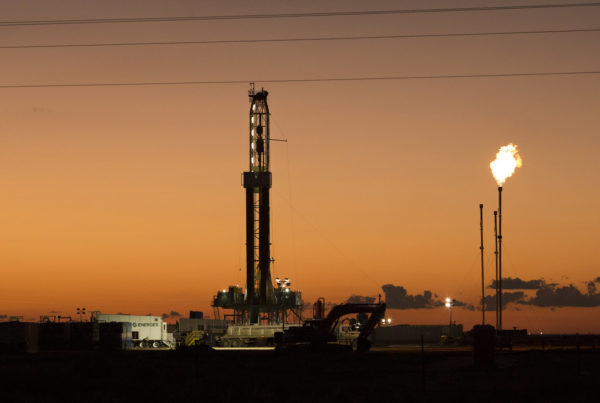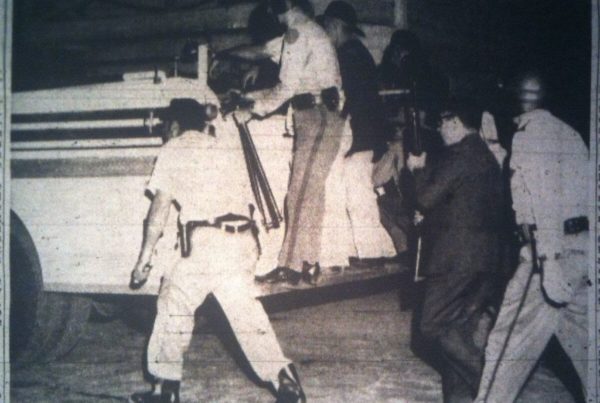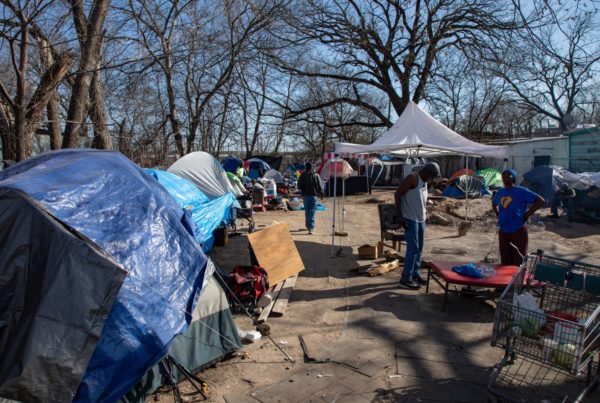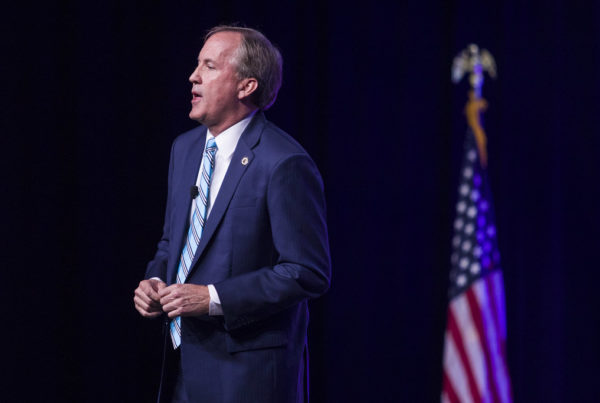Much of Texas faces freezing temperatures this weekend, and the potentially deadly consequences of rain that has accompanied them. On Thursday, six people died on a frozen highway outside Fort Worth after a massive auto pileup. On Friday, Amarillo’s high temperature is expected to be 21 degrees; 33 degrees in Arlington; and 35 degrees in Austin.
Jennifer McNatt, meteorologist-in-charge for the Regional Operations Center for the National Weather Service Southern Region says the cold air, which will remain in the state for several days, is a rare but not unprecedented occurrence.
“We’ve had snow events like this in February in the past, but certainly not something we see very often,” McNatt told Texas Standard.
Light freezing rain is expected to fall from Friday through Sunday morning, affecting an area from Northeast Texas down to the Central Texas Hill Country and west to the Big Bend and Midland areas.
“That’s gonna cause some dangerous travel situations on Saturday,” McNatt said.
On Sunday, much of the state can expect snow, with up to six inches in the Panhandle and 4 to 6 inches further west.
“We could see some light snow or ice down as far south as Austin or San Antonio, College Station and over to the Tyler-Longview area as well,” she said.
McNatt says the last time the Dallas-Fort Worth area saw as much snow as is projected this weekend was in 2011.
“I think what’s unusual about this particular event is how long the cold temperatures will be around before and after the snowfall is expected,” she said. “And that will usually keep the snow on the ground longer.”
With the potential for record-low temperatures on Sunday night and Monday morning, McNatt says Texans are likely to use lots of electricity to keep warm.
“People should be prepared for possible power outages, either because of the ice or because of the demand because of the cold temperatures,” she said.
The Weather Service recommends extra preparedness for cold temperatures:
– Pipes: wrap or drip outside pipes to prevent freezing.
– Power outages: be sure you have flashlights, batteries and a battery-powered radio.
– Vehicles: be sure cars are fully fueled, and if you must travel, carry water and jumper cables.


